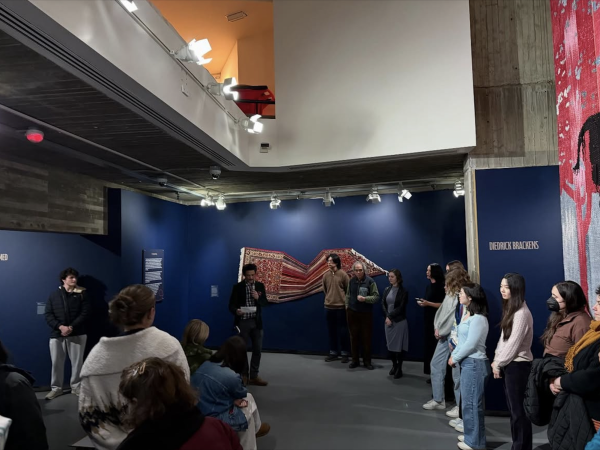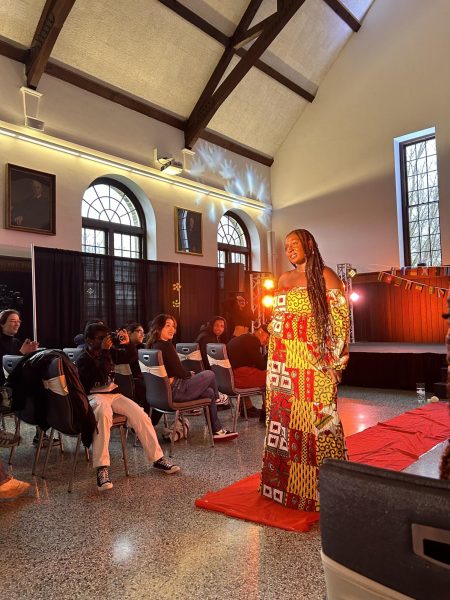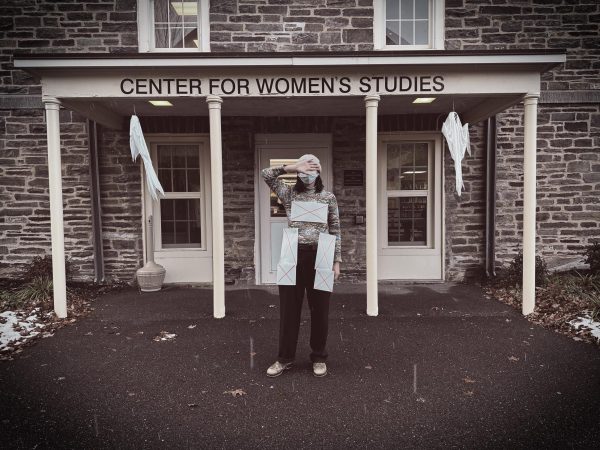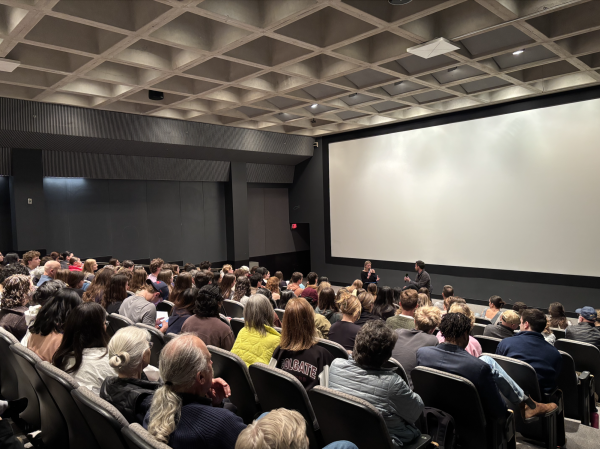Friday Night Film Features Director of “The Miseducation of Cameron Post”
The Miseducation of Cameron Post is a coming-of-age film that revolves around a teenage girl, Cameron, played by Chloë Grace Moretz, who is sent to a gay conversion therapy center called God’s Promise. All of this begins when she is caught with her best friend in the backseat of a car at a high school dance. Once her Aunt Ruth drops her off at God’s Promise, Cameron bonds with the other “disciples,” who also experience same-sex attraction, while they are forced to endure traumatic emotional abuse at the hands of “ex-gay” Reverend Rick and his sister who supposedly saved him.
As part of the bi-weekly Friday Night Film Series, students and faculty gathered together on a Zoom Webinar after individually viewing the film via a provided link and password. On Oct. 2, director Desiree Akhavan discussed the filming of The Miseducation of Cameron Post and answered students’ questions posed by Assistant Professor of Film and Media Studies Neta Alexander.
“When you originally read the novel – since The Miseducation of Cameron Post is an adaptation of a novel that came out in 2012 – what made you want to turn that into film?” Alexander asked Akhavan in the Webinar.
This simple yet significant question led Akhavan to gush over the originality of the otherwise untapped genre and concept, which entranced her and her close friend, co-screenplay writer Cecilia Frugiuele.
Bildungsromane flood bookstores and theaters today, and plotlines about ordinary teenagers in extraordinary circumstances are no stranger to Hollywood cinema. However, Emily M. Danforth’s novel chronicles a coming-of-age story that is typically left untold – the perspective of a lesbian teenager – and tackles the heartbreaking topic of gay conversion therapy that is too often glossed over in American history and film.
Even amid similar contemporary trailblazers such as Boy Erased and Love, Simon, also released in 2018, The Miseducation of Cameron Post sets itself apart by highlighting the intersecting struggles of growing up as a queer person and as a woman.
“I thought it was kind of revolutionary in how it depicted that moment in your life when you realize the adults don’t have the answers, that you can’t keep following the authority blindly and you kind of have to shape and carve out a space for yourself,” Akhavan said.
At one moment in the film, Cameron questions Reverend Rick’s authority and asks whether or not he and his sister even know what they are doing. When someone comes to interview Cameron about her experience in God’s Promise, she boldly confesses that she does not know whether her superiors really have the teens’ best interest in mind.
Cameron Post’s courageous spirit of activism comes at an apropos moment in politics and history that undoubtedly shaped the film and accentuates the pressing importance of its message. This project started filming during Obama’s presidency and ended after Trump’s inauguration.
Akhavan addressed the communal heartache that suffused the set the day after the 2016 election – the day in which they had to film the happiest scene of the movie. Moretz and the rest of the cast reportedly channeled this heavy grief into the scene with an explosion of passion and rebellion against the rising administration.
“That’s just the way that life feels to me. I think in life every triumph is laced with some pain and every pain is laced with a little bit of hope,” Akhavan said.
The Miseducation of Cameron Post embodies the amalgamation of these three elements – triumph, pain and hope – which further encourages audiences to stay optimistic and keep fighting for social justice.
This informative discussion with Akhavan serves as a reminder that channeling one’s passionate activism into art is an incredibly effective way of raising awareness about social issues, emotionally moving multitudes and rallying audiences together to demand change.











